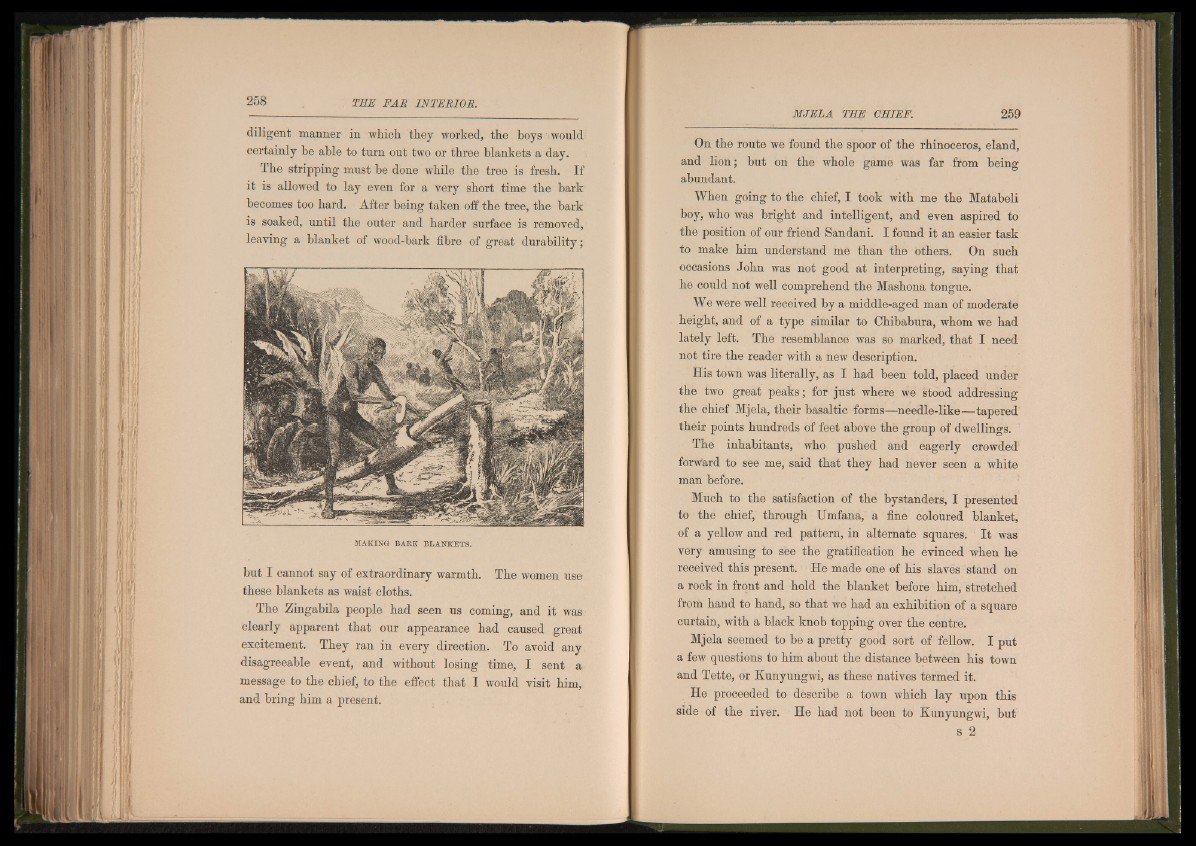
diligent manner in which they worked, the boys would
certainly be able to turn out two or three blankets a day,
The stripping must be done while the tree is fresh. If
it is allowed to lay even for a very short time the bark
becomes too hard. After being taken off the tree, the bark
is soaked, until the outer and harder surface is removed,
leaving a blanket of wood-bark fibre of great durability;
MAKING BARK BLANKETS.
but I cannot say of extraordinary warmth. The women use
these blankets as waist cloths.
The Zingabila people had seen us coming, and it was
clearly apparent that our appearance had caused great
excitement. They ran in every direction. To avoid any
disagreeable event, and without losing time, I sent a
message to the chief, to the effect that I would visit him,
and bring him a present.
On the route we found the spoor of the rhinoceros, eland,
and lion; but on the whole game was far from being
abundant.
When going to the chief, I took with me the Matabeli
boy, who was bright and intelligent, and even aspired to
the position of our friend Sandani. I found it an easier task
to make him understand me than the others. On such
occasions John was not good at interpreting, saying that
he could not well comprehend the Mashona tongue.
We were well received by a middle-aged man of moderate
height, and of a type similar to Chibabura, whom we had
lately left. The resemblance was so marked, that I need
not tire the reader with a new description.
His town was literally, as I had been told, placed under
the two great peaks; for just where we stood addressing
the chief Mjela, their basaltic forms—needle-like—tapered
their points hundreds of feet above the group of dwellings.
The inhabitants, who pushed and eagerly crowded1
forwhrd to see me, said that they had never seen a white
man before.
Much to the satisfaction of the bystanders, I presented
to the chief, through Umfana, a fine coloured blanket,
of a yellow and red pattern, in alternate squares. I t was
very amusing to see the gratification he evinced when he
received this present. He made one of his slaves stand on
a rock in front and hold the blanket before him, stretched
from hand to hand, so that we had an exhibition of a square
curtain, with a black knob topping over the centre.
Mjela seemed to be a pretty good sort of fellow. I put
a few questions to him about the distance between his town
and Tette, or Kunyungwi, as these natives termed it.
He proceeded to describe a town which lay upon this
side of the river. He had not been to Kunyungwi, but
s 2